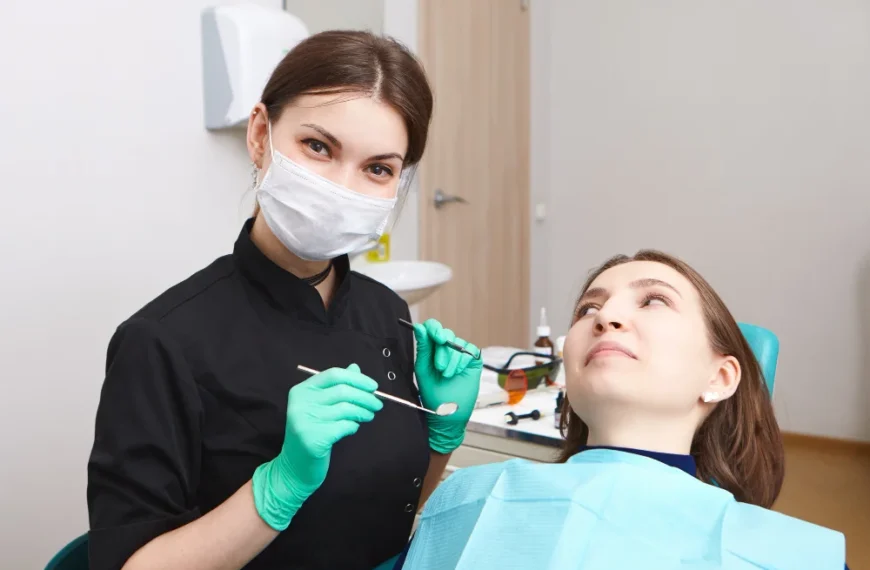University life. A whirlwind of lectures, late-night study sessions, social pressures, and the ever-present quest for self-discovery. It’s a transformative period, but also one fraught with challenges that can easily lead to overwhelming feelings.
From academic stress to social anxieties and financial worries, students face unique stressors that can significantly impact their mental and physical well-being. Thankfully, a growing trend is emerging on campuses across the globe: the rise of comprehensive wellness centers for students with the resources and support they need to thrive. These aren’t your parents’ infirmaries. Modern university wellness centers are holistic hubs focused on preventative care, education, and access to various services.
They recognize that student success is inextricably linked to their overall well-being and are proactively addressing the diverse needs of a generation navigating an increasingly complex world. One of the most significant contributions of these wellness centers is their focus on promoting mental health awareness and providing easily accessible mental health resources.
The pressures of academic performance, combined with the transition to independent living, often trigger or exacerbate mental health challenges in young adults. Many students find themselves searching online for keywords such as “mental health therapist near me” or “mental health services near me,” highlighting the urgent need for readily available support. University wellness centers are filling this gap by offering confidential counseling, stress management workshops, and peer support groups. You can find other services provided to students at these wellness centers.
Mental Health and Wellbeing: A Top Priority
The stigma that surrounds students’ mental health is slowly dissipating, and wellness centers are playing a vital role in normalizing conversations about mental well-being on campus. They host events and campaigns to raise awareness, reduce prejudice, and encourage students to seek help without shame.
By creating a supportive and inclusive environment, these centers empower students to prioritize their mental health and seek assistance when needed. The services offered extend beyond traditional therapy. Many centers now incorporate mindfulness practices, meditation sessions, and even art and music therapy into their mental health programs.
This multi-faceted approach acknowledges that mental well-being is not just about treating illness, but also about fostering resilience, promoting self-care, and cultivating a sense of community.
Health and Wellness Center: A Holistic Approach
Wellness centers use a holistic approach to health, recognizing the interconnectedness of mind, body, and spirit. They offer different services to promote physical health, prevent illness, and empower students to make informed choices about their well-being. These services often include:
- Primary Care: On-site medical professionals provide basic healthcare services, including check-ups, vaccinations, and treatment for common illnesses. This convenient access to medical care eliminates the need for students to navigate unfamiliar healthcare systems and ensures they receive timely attention when needed.
- Nutritional Counseling: Registered dietitians offer personalized guidance on healthy eating habits, addressing weight management, food allergies, and dietary deficiencies. They provide students with the knowledge and skills to make the right food choices that support their physical and mental health.
- Fitness Programs: Gyms, fitness classes, and recreational sports opportunities are often integrated into wellness centers, encouraging students to stay active and maintain a healthy lifestyle. These programs promote physical fitness, reduce stress, and foster a sense of community.
- Sexual Health Education and Resources: Wellness centers provide confidential and comprehensive information about sexual health, including contraception, STI prevention, and safe sex practices. They also offer resources such as condoms and testing services, promoting responsible sexual behavior and reducing the risk of unintended pregnancies and STIs.
Mental Health Services: What You Should Know
Mental Health Clinic and Support Services
Many wellness centers incorporate a dedicated mental health clinic within their facility to address the rising demand for mental health support. This clinic provides students a safe and confidential space to access professional counseling and psychiatric services.
For those actively searching for resources like “mental health clinic near me,” these on-campus clinics offer a convenient and accessible solution. The goal is to provide immediate assistance and connect students with the appropriate resources to address their needs.
Mental Health Wellness Programs
Wellness centers often offer mental health wellness programs, designed to teach students coping mechanisms, stress management techniques, and mindfulness practices. These workshops and seminars provide valuable tools for managing anxiety, improving sleep quality, and enhancing overall well-being.
Recognizing the diverse needs of students, wellness centers are increasingly offering services tailored to specific groups, such as international students, LGBTQ+ students, and students with disabilities. This ensures that all students have access to culturally sensitive and inclusive support.
Mental Health Coaching
Many programs also incorporate mental health coaching, helping students develop strategies for academic success, time management, and goal setting. This proactive approach empowers students to take control of their mental well-being.
The impact of wellness centers extends beyond individual students. By fostering a culture of well-being on campus, these centers contribute to a more supportive and inclusive learning environment. This, in turn, can lead to better academic performance, reduced rates of mental health issues, and a greater sense of community among students.
Students can also easily find services such as “mental health services near me” and “mental health help near me”. The rise of wellness centers on university campuses represents a significant shift in how institutions address their students’ needs.
These centers empower students to thrive academically, socially, and personally by prioritizing mental and physical well-being. The expansion of these centers and their range of services is crucial as universities continue to recognize the growing mental health crisis among students.
By offering accessible, comprehensive, and destigmatized support, wellness centers play an important role in creating a healthier, happier, and more successful generation of college graduates. It’s a worthwhile investment in both today’s students and tomorrow’s leaders. A mental health treatment center is a perfect place for students to get help.
Mental Health and Wellness Resources
The increasing availability of mental health and wellness resources, including access to mental health professionals near me, is a testament to the growing awareness of the importance of well-being in higher education.
As universities continue to expand and enhance their wellness centers, they are creating a supportive ecosystem that empowers students to navigate the challenges of university life and emerge as confident, resilient, and well-rounded individuals.






